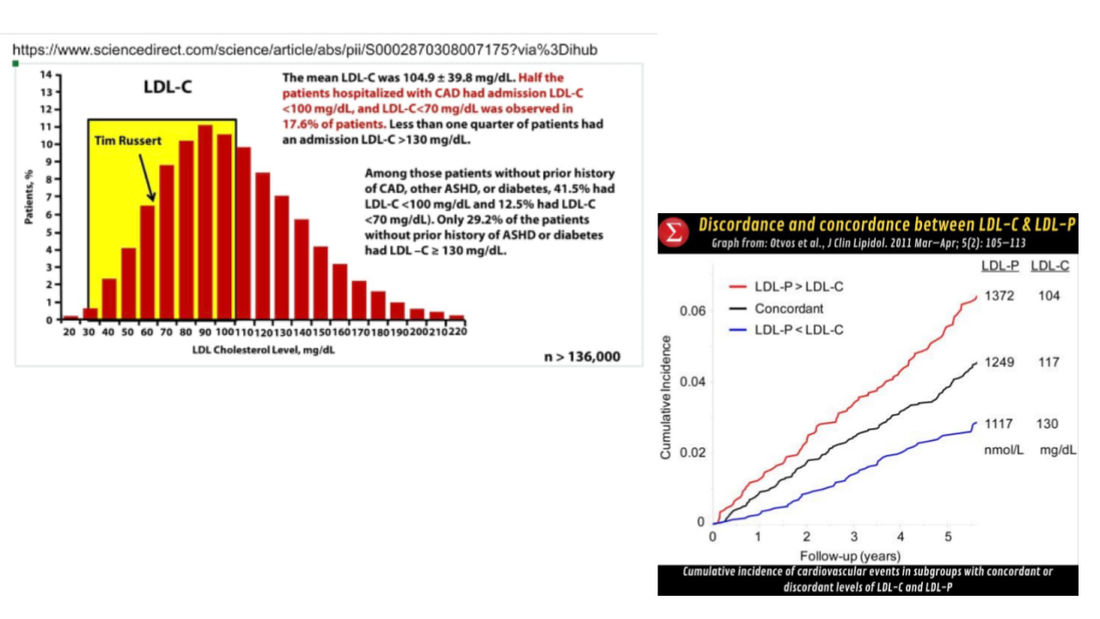This post was co-authored with Dr. Rashida Melinkeri (Internal Medicine and Lipidology). Since 50% of the people who had a heart attack had normal LDL-C (“bad cholesterol”) results (Fig. 1), the real problem lies in either not identifying all the metrics that really matter or the LDL cholesterol needs to be lowered further. While LDL-C, HDL-C, Triglycerides, HbA1c, BMI, blood pressure, etc. are important markers, there are others that have been shown to be as important in diagnosing the state of one’s heart health. Getting a comprehensive heart health assessment done across blood, body composition and physiological markers provides a more holistic view of the heart's functioning. I want to focus on one specific marker that is a much better indicator of heart health, especially for folks who have some other comorbidity, such as pre-diabetes, diabetes, hyperinsulinemia, etc: Your ApoB measurement, which is essentially the total number of LDL particles (or LDL-P) carrying that cholesterol. LDL-C is a good measure of atherosclerosis (cardiovascular degeneration) only as long as the cholesterol to triglycerides ratio in each LDL particle is at the typical distribution. The moment that changes (typically due to some sort of comorbidity), LDL-C and LDL-P become discordant and in such situations, LDL-P is the better indicator of cardiovascular disease. Check out Fig. 2 to see the long term risk when they become discordant, specifically when LDL-P > LDL-C. Extensive work done by the South Asian Heart Center, a non-profit organization, requires that ApoB levels be less than 50 mg/dL for South Asians in their blood tests, while the Lipid Association of India recommends ApoB levels less than 50 mg/dl, 65 mg/dl and 80 mg/dl for those at extreme risk, very high risk and high risk of cardiovascular diseases respectively, rather than the 46 - 174 mg/dL that is used in the few cases it is even measured.
Bottomline: Make sure to ask your doctor to include LDL-P (or ApoB) in your next blood test and get your Lp(a) tested for as well (your genetic risk component which cannot be changed through lifestyle alone). If you are interested in getting a very focused heart health assessment done with the parameters and ranges optimized for you, drop me a note. The GeneClinicX Heart Health Assessment test includes blood, body composition and physiological parameter measurements and is done at your home. You get a 30-minute session with a counselor, where we will explain your results and answer any questions you may have. This test is only available in India but we will be launching a test in the US shortly.
Post #2: Measuring the Relevant Blood Markers for Heart Disease
